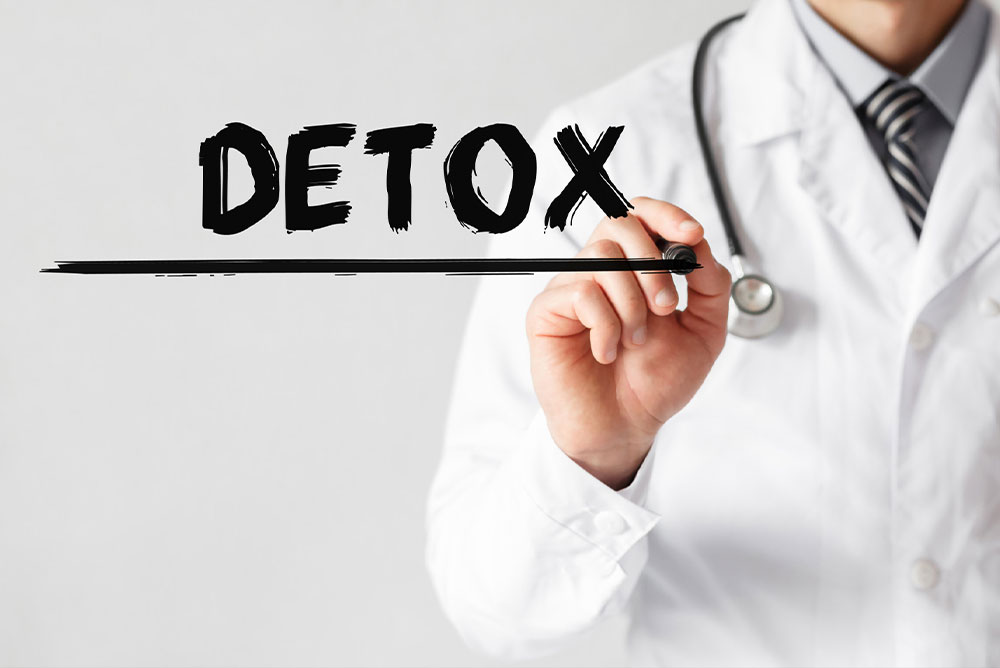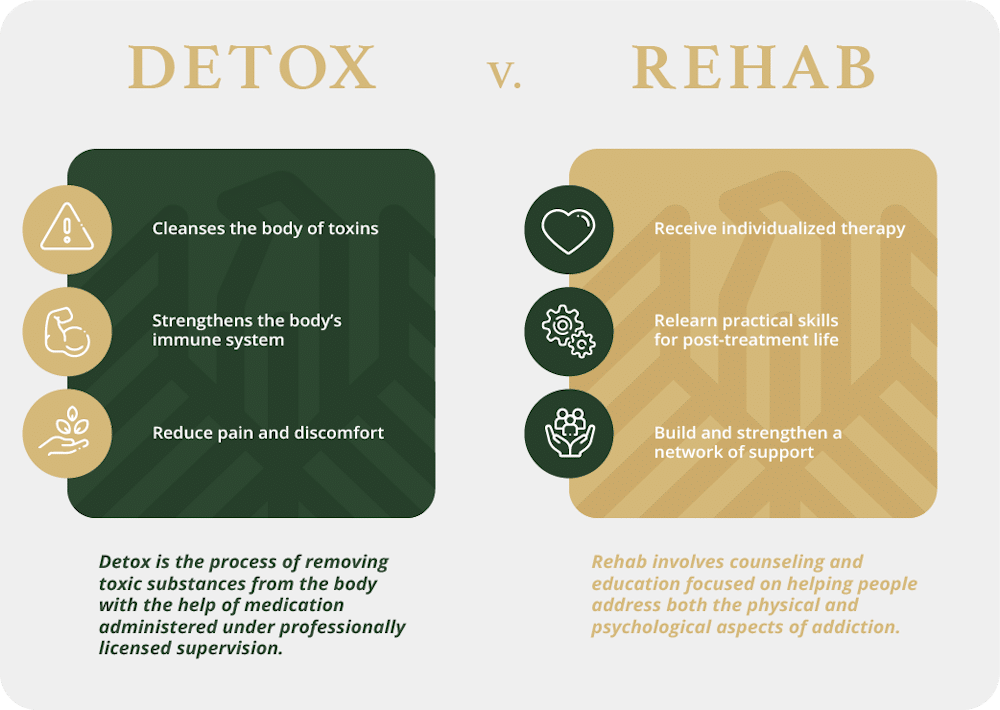When it comes to treatment for substance use disorder, each method has its differences. However, there is more to recovery than just the method itself. While specific forms of treatment do well for those suffering from an addiction, the method of care isn’t the miracle formula. Overall, it’s the entirety of the rehab experience and how much the patient is willing to put into it that will garner success.
There is More to Recovery Than Just Detox
There is more to recovery than just detoxing from drugs and alcohol. This is an important first step, but it is only the beginning. Recovery is a lifelong process, and there are many different aspects to it.
One of the most important aspects of recovery is learning how to manage triggers. Triggers are anything that can cause a person to relapse. They can be environmental, emotional, or even physical. Learning how to identify and manage triggers is an important part of recovery.
Another important aspect of recovery is learning how to deal with stress and anxiety. This can be done through therapy, medication, or other coping mechanisms. It is important to find a method that works for you and stick with it. Recovery is also about rebuilding your life. This includes finding new hobbies, making new friends, and getting involved in activities that you enjoy. It is important to find a balance between taking care of yourself and being active in your recovery.
Recovery is a journey, not a destination. It is important to remember that relapse is a part of recovery. If you do relapse, it does not mean that you have failed. It just means that you need to get back on track.
What is Medication-Assisted Treatment (MAT)?
Medication-Assisted Treatment (MAT) is the process of withdrawing from drugs or alcohol under the care of a medical professional. This can be done in an inpatient or outpatient setting, depending on the severity of the addiction and other factors. Medical detoxification usually involves tapering off of the substance slowly, to minimize withdrawal symptoms and reduce the risk of relapse. In some cases, medications may be used to help manage withdrawal symptoms and make the detoxification process more comfortable.
Detoxification is only the first step in recovery from addiction, but it is an important one. After completing a medical detox program, patients will typically need to enter into a treatment program to address the underlying causes of their addiction and learn how to maintain sobriety in the long term. Treatment may take place in an inpatient or outpatient setting and may last for a few weeks or several months.
Addiction is a complex disease, and there is no one-size-fits-all approach to treatment. The most important step in recovery is taking the first one – reaching out for help. If you or a loved one are struggling with addiction, please don’t hesitate to reach out to us. We can help you find the treatment program that is right for you and start you on the road to recovery.
What Addictions Do Detox Programs Treat?

Detox can be an important first step in recovery, but it is not always necessary or sufficient on its own. In some cases, people may be able to stop using the addictive substance without any formal treatment. However, most people will need some form of counseling or therapy to address the underlying issues that led to the addiction in the first place.
Counseling can help people learn new coping skills, develop a support network, and explore the root causes of their addiction. Therapy can also provide a safe space to process emotions and talk about difficult experiences. Medications may also be used in some cases to help manage withdrawal symptoms or reduce the risk of relapse.
Drug and Alcohol Withdrawal Symptoms
Withdrawal symptoms from drugs and alcohol can vary greatly depending on the substance(s) involved, as well as the person’s physiology. In general, however, drug and alcohol withdrawal symptoms may include:
- Anxiety
- Depression
- Insomnia
- Irritability
- Nausea/vomiting
- Muscle aches and pains
- Sweating
- Tremors
- Increased heart rate
Withdrawal symptoms can range from mild to severe, and in some cases can be life-threatening. Therefore, it is important to seek professional help when attempting to detox from drugs or alcohol. Medical detoxification programs can provide the necessary support and care to help someone through the process of withdrawal safely.
How Do I Prepare Your Mind and Body for Detox?
Medically assisted detoxification can be an important step in overcoming addiction and starting fresh. However, it is also a process that can come with physical and psychological challenges. To best prepare for medically assisted detoxification, it is important to take care of both your mind and body.
Before beginning the detox process, it is recommended that you eat a healthy diet and exercise regularly. This will help to boost your energy levels and build up your strength. It is also important to get plenty of rest. During detox, your body will be working hard to cleanse itself, so it is important to give it the time it needs to recover.
In addition to taking care of your physical health, it is also important to take care of your mental health. This means preparing yourself mentally and emotionally for the challenges that you may face during detox. This can be done by talking to a therapist or counselor about your expectations and concerns.
It is also important to have a support system in place during detox. This could include friends, family, or a support group. Having people to talk to who understand what you are going through can make the process much easier.
Successful Treatment Requires Both Detox and Rehab
Successful treatment of addiction requires a comprehensive approach that addresses both the physical and psychological aspects of the disease. Detoxification is an important first step in treatment, but it is only one part of the equation. To be truly effective, rehab must also address the underlying psychological issues that contribute to addiction.
Cognitive-behavioral therapy (CBT), for example, can help patients learn how to cope with the stressors and triggers that lead to drug use. Other methods of treatment, such as family therapy, can help repair relationships that may have been damaged by addiction. A comprehensive approach to treatment is essential for lasting recovery.

Common Drug and Alcohol Rehabs to Treat Addiction
There are many types of drug and alcohol rehabs, each with its unique methods and philosophies. However, there are some commonalities among the most effective programs. Typically, successful rehabs, like residential treatment, for example, will use a combination of therapy, counseling, and support groups to help patients overcome addiction.
Therapy is often a vital component of rehab, as it can help patients understand the underlying causes of their addiction and develop healthy coping mechanisms. Counseling can also be helpful, as it can provide support and guidance through the recovery process. Additionally, many rehabs also offer support groups, which can provide valuable peer support.
Ultimately, the goal of any successful rehab program is to help patients achieve long-term sobriety. To that end, most rehab programs will provide follow-up care and support to help patients stay on track after they leave treatment. This may include individual counseling, group therapy, and/or 12-step meetings.
What is Addiction Counseling?
Addiction counseling is a process through which people with addiction problems can explore their condition and work towards recovery. Addiction counseling aims to help the individual develop coping mechanisms to deal with their addiction, as well as to address any underlying psychological issues that may be fuelling the addiction. Addiction counseling usually takes place on a one-to-one basis, but can also involve group work and family therapy.
Who is a Good Candidate for Medication-Assisted Detox?
Medically assisted detox is a good fit for people who are struggling with addiction and want to get clean. It can be difficult to tell when you may need it, but some signs can indicate that medical assistance would be beneficial. If you are experiencing withdrawal symptoms, if you have relapsed multiple times, or if you have a co-occurring mental health disorder, medically assisted detox may be right for you. Speak with a professional to learn more about your treatment options.
Is Rehab for Addiction Even Worth it?
There are many reasons why rehab for addiction is worth it. Addiction can lead to serious health problems, including mental health issues and physical health problems. It can also lead to financial problems, as well as problems in relationships. In addition, addiction can lead to crime and other negative behaviors.
Rehab can help people to overcome their addiction and get their lives back on track. It can provide them with the tools and resources they need to cope with their addiction and make positive changes in their life. Rehab can also help people to reconnect with their families and friends, and to build new relationships.
Eagle Creek Ranch Can Help You Recover
Addiction is not a smooth road to travel; there are bumps, and winding roads, and sometimes it seems like there is no end in sight. However, that doesn’t mean you have to walk alone. At Eagle Creek Ranch, we want to help you find the best way forward for you with the utmost in individualized care. If you or a loved one would like to find out more, you can contact us here.

Clinical Director
Kendall Maloof is the clinical director at Eagle Creek Ranch Recovery. She is a licensed marriage and family therapist and has held multiple leadership roles before settling here at Eagle Creek. Kendall received her master’s degree in marriage and family therapy from the Chicago School of Professional Psychology in 2016. Her career in mental and behavioral health began in 2014 when she took up internships in both the nonprofit and for profit sectors. She interned at multiple reputable companies, such as The Living Success Center and 449 Recovery in California.
In 2019, Kendall became the clinical director of Sunsets Recovery for Woman, a dual diagnosis program in southern California. Kendall is a natural leader. She has an incredible ability to problem solve and stay calm in any situation. Kendall never fails to show up when she is needed, and her calm demeanor makes her team and clients feel at ease. Eagle Creek Ranch Recovery is proud to have Kendall as our clinical director.




